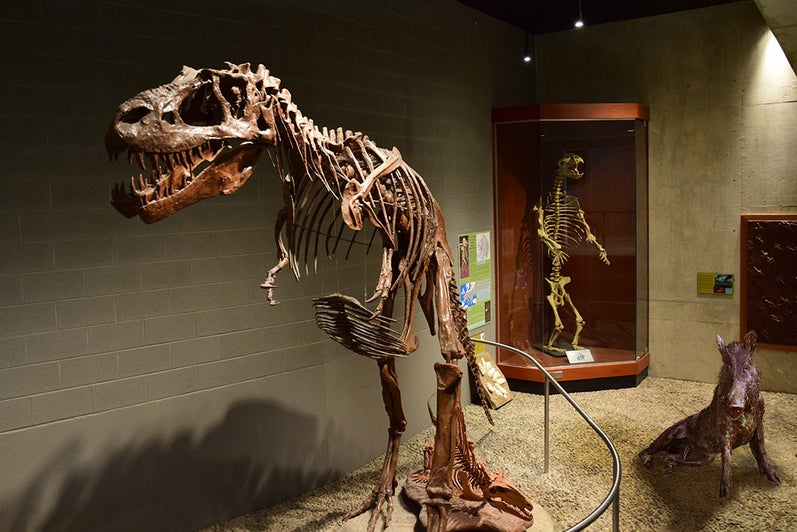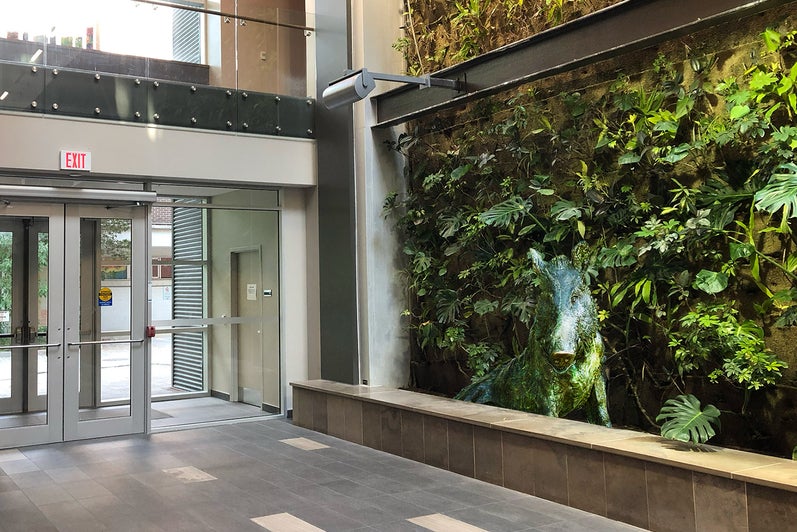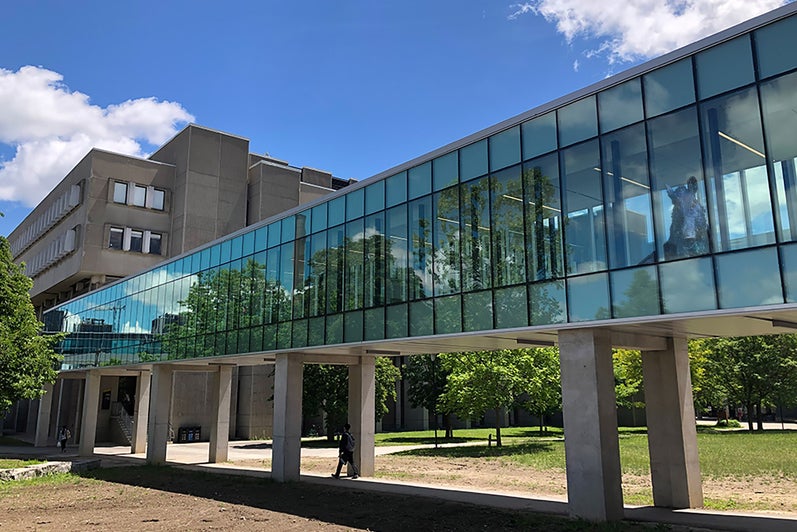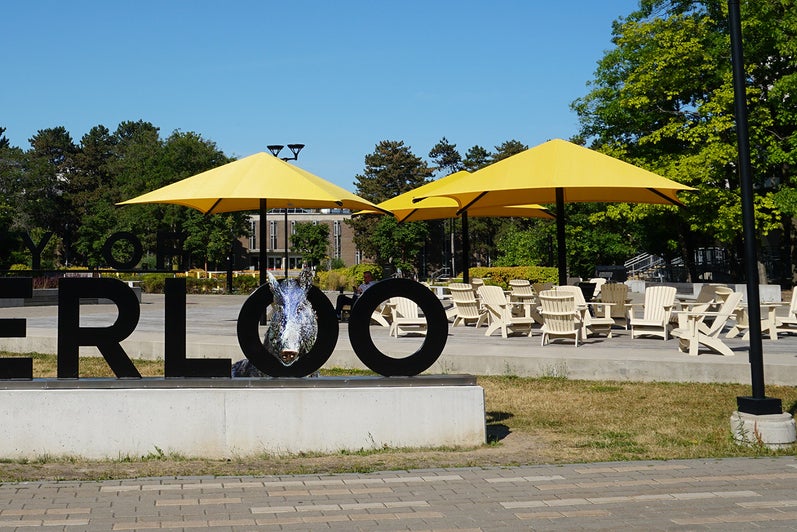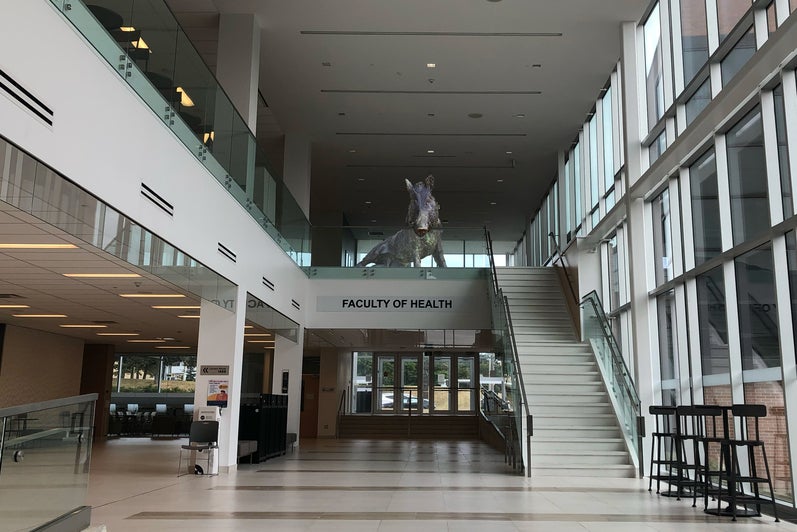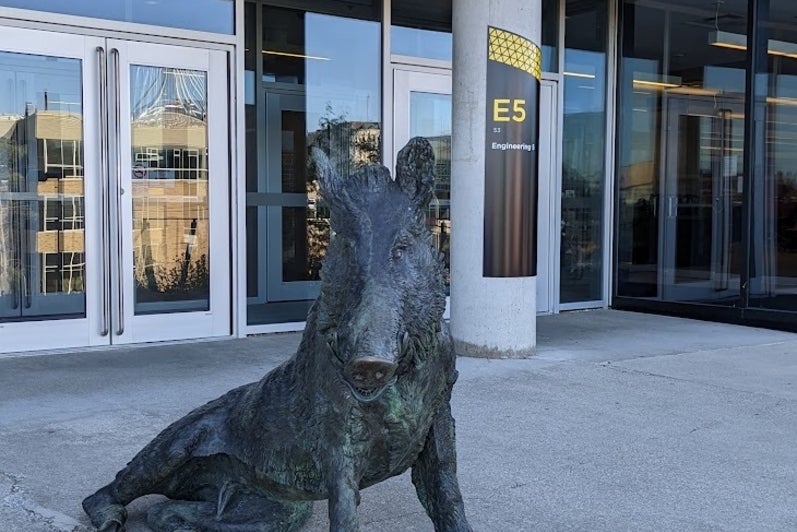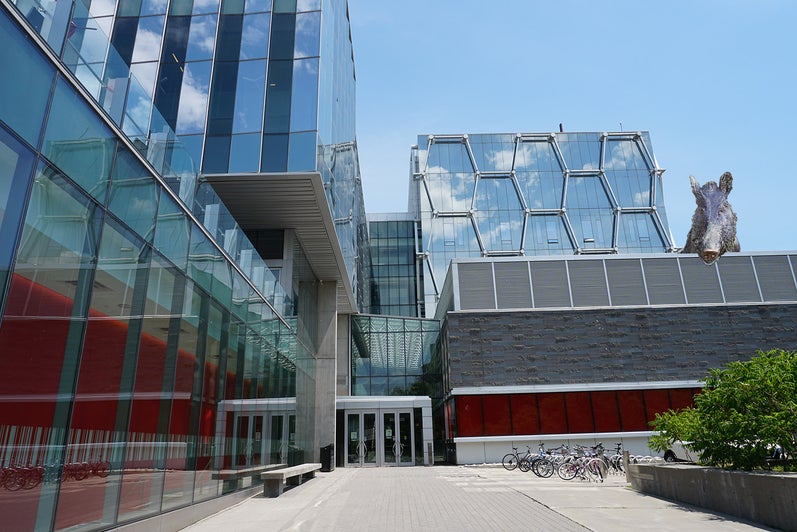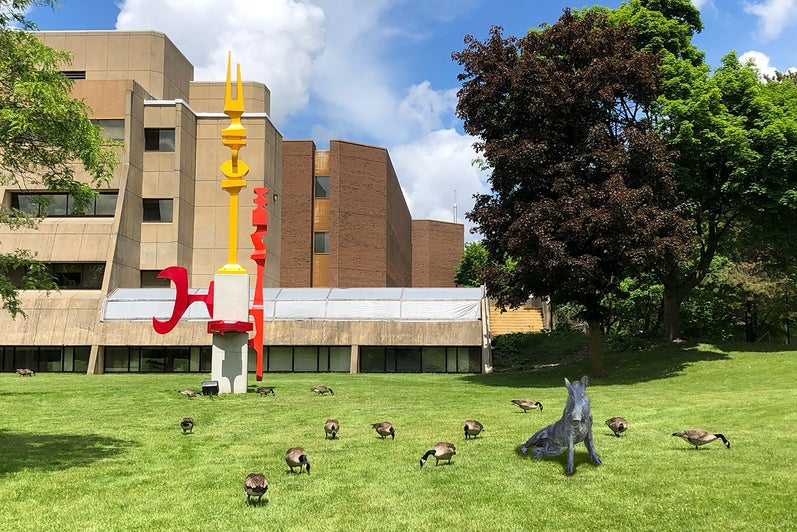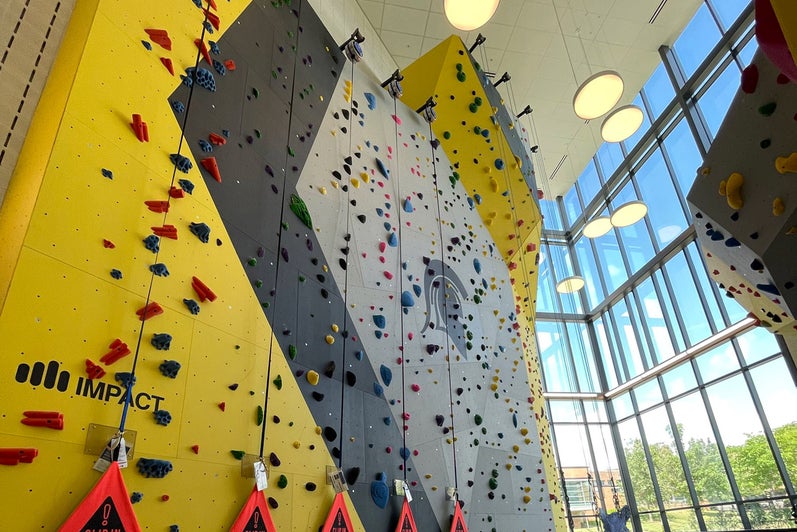
newsletter for faculty and staff | summer 2022
Getting back into the swing of things
» Sheila Ager, Dean of Arts
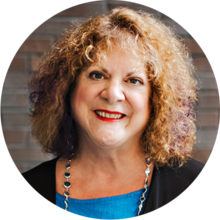
Well, hello everyone – it’s me. It’s been a long time, and I’ve watched a lot of Netflix, and I’m looking forward to getting back to work full-time beginning in September. In the meantime, I thought I’d submit a short note to this edition of Inside Arts to start getting back into the swing of things.
Arts strategic plan
I expect that one thing many of you may be wondering about is, where are we with the Arts strategic plan? Our initial task force did a lot of consultation work through 2020. Throughout 2021, we had working groups delving into those consultations and refining further the themes that had arisen. I had originally hoped to have a draft ready to share with the Faculty in early 2022, but, well, pandemic and some other factors rather got in the way. I am extremely grateful to everyone who has already put so much work into these preliminary stages of the plan, and I’m now hoping to have a draft plan ready to go out to the Faculty in the Fall.
A strategic plan is to some extent an expression of who we are, but it is even more an expression of who we want to be and how we expect to get there. As such, I suppose it might be causing anxiety in some that we don’t as yet have a formal and fully approved plan covering the next several years. What I wanted to do with this brief piece was to provide some reassurance that initiatives undertaken in the Faculty over the past couple of years have in fact been very closely aligned, not only with the themes that have arisen out of the Arts consultation and working group processes, but also with the UW strategic plan and with the directions our new President has been indicating with his Futures Framework. Alas (but not really!), there are simply so many of these initiatives – in teaching and learning, research, and community engagement and development – that I can only touch on a few representative examples. My apologies that I’m not able to include everything here!
Social impact
One of the leading themes that came out of our consultations was teaching and research with social impact. As educators and researchers, we’re all aware of the fundamental contributions made by Arts disciplines in this area, whether it’s through direct contributions to (e.g.) policy-making or more indirectly through the pedagogical exploration and discussion of human values in which all of us engage. I’m very pleased that as part of his proposed Futures Framework, President Goel has specified “Societal Futures” and “Economic Futures” (alongside technology, sustainability, and health). As a recent note from the President on the subject of “Waterloo at 100” pointed out, “Our recent consultations with students, faculty and staff revealed a collective desire to focus our talents on the complex challenges facing humanity.” On this front, I’d like to single out the example of the Global Engagement Seminar (run for the past few years under an ARTS 490 rubric). The purpose of the GES – which was developed by and is led by the Arts Faculty – is to bring teams of students together from across the entire campus to tackle “wicked problems” and propose real-world solutions. Past topics for the course have included AI, democracy and populism, pandemic, and water.
Interdisciplinary collaboration
The GES is fundamentally interdisciplinary and hence touches on another of the Arts strategic plan themes: connection, community, and collaboration through interdisciplinarity. Arts faculty members have been doing interdisciplinary work for a long time, and several of our programs and majors – such as Global Business and Digital Arts, Arts and Business, Social Development Studies, Communication Arts, Legal Studies, and others – are fundamentally interdisciplinary or multidisciplinary. The past couple of years have seen further enhancement of interdisciplinary and collaborative programming, such as the leadership shown by the language departments in the development of the Cultural Identities program. And I would particularly like to point to the hard work and vision of the School of Accounting and Finance in its collaboration with the Faculty of Environment to create the new Bachelor of Sustainability and Financial Management.
The BSFM program – whose first students will be joining us this fall – will be one of only a very few UW programs that feature inter-Faculty collaboration. As time goes on, as barriers between traditional disciplines continue to erode and outmoded ideas around proprietary ownership of specific academic areas fade, there will be more and more such programs.
Arts researchers are already heavily engaged in subjects such as climate change, artificial intelligence, and health policy, as evidenced by Arts participation – and leadership – in UW collaborative research groups such as the Water Institute, the Centre for Bioengineering and Biotechnology, the Cybersecurity and Privacy Institute, the Games Institute, the Interdisciplinary Centre on Climate Change, and others. Some of these areas of research might have been thought to “belong” to other traditionally-constituted Faculties, such as Environment or Health or Mathematics. While the fact that Arts researchers are so engaged in them may be seen as a sign of the future, it is also a demonstration of the breadth and relevance that has always been a fundamental part of Arts education and scholarship.
Expanding co-op
To return to other themes identified as desirable for our strategic plan, student experience and success ranked high in the consultations. This aligns well with the emphasis on future talent development in the University strategic plan. Expansions to Arts Co-op – as of 2020, all of our programs feature a Co-op option – are providing all Arts students with the opportunity to take advantage of one of Waterloo’s most distinctive educational features. In keeping with our thematic emphasis on social impact, we’ve also recently been emphasizing fundraising for the creation of Co-op for Social Good positions, specifically to enable placements with artistic and charitable organizations that might otherwise be unable to hire Co-op students. The institution as a whole is exploring ways for us to be more flexible with our Co-op requirements and other work-integrated learning opportunities, just as we are also working to create more flexible learning paths for our students. I think that the pandemic has taught us some valuable lessons here.
EDI
A broader set of desiderata – not linked to any one theme, but rather underpinning all of them – also arose out of the consultations. Of these, I would like to single out attention to equity, diversity, and inclusion (EDI) as the most pressing. I believe that over the past couple of years we have all become more aware of the immense harm and lasting legacy of racism(s), but awareness alone is clearly not enough: the recent visit made by the Pope to Canadian Indigenous leaders and communities highlighted how far we have yet to go. I’m very pleased – and very grateful to those involved for their hard work – by the success of the initiatives that we’ve undertaken so far. This past year the University approved two diplomas in the field of Black Studies and Fundamentals of Anti-Racist Communication. The Faculty of Arts recently made two Indigenous hires: Professor Logan MacDonald in Fine Arts (who is now a Canada Research Chair) and Professor Talena Atfield in History. And we are currently in the process of finalizing multiple cluster hires in the areas of Black Excellence and Indigenous Excellence (more information on that in the fall!). But as I mentioned above, there is so much more that needs to happen on this front, and EDI will remain a core element in the final Arts strategic plan.
Moving forward
The chief purpose of this article was to give you all a sense of the direction of some recent Arts initiatives, and to provide some reassurance that, even without a formal strategic plan in place as yet, the Faculty has been moving forward in directions identified by its members as necessary. As always, this little piece has turned into something longer than I was intending; at the same time I regret all the things that I was unable to include. So, before concluding, I will just say that as we continue to develop the strategic plan – with the assistance of the Faculty as a whole – we will be addressing matters such as the Arts identity (particularly within the context of a STEM-oriented institution); potential modifications to our traditional habits of governance and organization to as to support and facilitate the change we want to see; and (very importantly!) the question of metrics to enable us to determine progress.
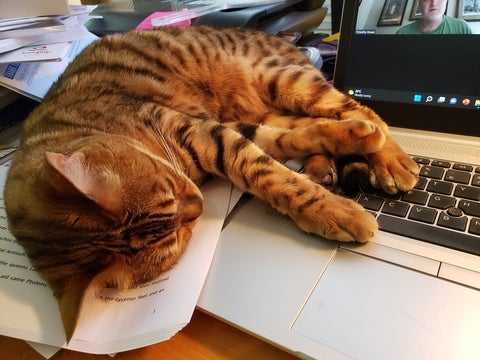
And in case anyone has been wondering, the cat remains very helpful. Insofar as she is capable. Or wishes to be.
A word from the acting dean
» Doug Peers, Acting Dean of Arts
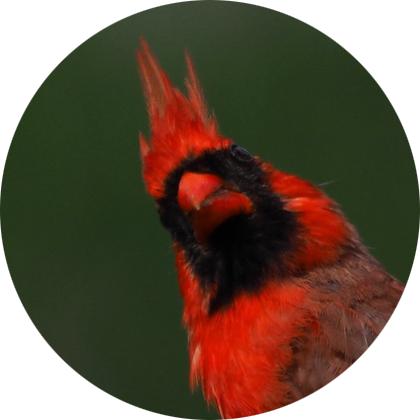
The past five months have been an interesting time for me — starting the year as a has-dean, coming out of a sabbatical in which I became a covid cliché with such preoccupations as birdwatching (see my avatar, Cardinal WTF) and sourdough breadmaking, and then contending like so many had done for the past two years with learning how to teach in a virtual environment. I then switched into being an Acting Dean.
Some things had changed: often empty hallways, disconnected water fountains, and an even greater hurdle in finding food or refreshments on campus. And it quickly became clear to me just how much the pandemic had not only challenged longstanding teaching and research practices, but also how exhausting and frequently frustrating that had been for so many of you. But so much has been familiar, pleasantly so in the case of the many great colleagues with whom I had the chance to work with again, not so pleasantly in the case of my longstanding battles with Unit 4, Concur, and WorkDay (a wonderful oxymoron in that it often did not work for me, and even when it did it often took longer than a day). There have been surprises – most recently a raccoon that decided to drop into an office in PAS.
It has also been tremendously rewarding – notably in the small part I got to play in recruiting many excellent future colleagues for our community, especially through the Black and Indigenous Excellence positions. Admittedly my sourdough starter has been starved of attention, my birdfeeders have not been filled as promptly, and my caffeine intake has soared. I discovered that cargo shorts are compatible with Teams (even if I sometimes wondered if I was compatible with Teams).
Most memorable of all though were the five convocations I attended. They were a remarkable testimony to the resilience, commitment, sense of community, and potential of our students, and to the many staff and faculty who did so much to mentor and inspire them through the pandemic.

Congratulations 2022 Arts Award recipients!
» Dean of Arts Office
This year marks the 10th anniversary of the Arts Awards for Excellence in Service, Teaching and Research, which were established by Doug Peers to recognize outstanding contributions of all the constituent groups in Arts: staff, students, faculty, and lecturers. The 2022 cohort of recipients were selected in the late spring by the Arts Honours & Awards Committee. Learn about the winners in the following nomination excerpts.
Excellence in Service
Bill Eickmeier, IT Specialist, Psychology
The tonic we all needed
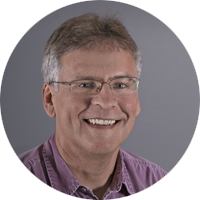
Elizabeth Rogers, Communication Officer, Dean of Arts Office
Accessible communication to benefit all
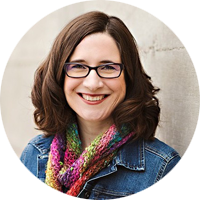
Carla Fehr, Associate Professor, Philosophy
Equity makes everything better

Michaela Tatu, Administrative Manager, Arts Undergraduate Office
Essential to our success
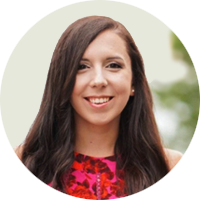
Michaela has a unique awareness of when the AUO team needs a boost in morale or social connection. She demonstrated her usual excellence in supporting the office with working from home and then the transition back to working in person. Staff returned to a “welcome back” package on their desks, a demonstration of Michaela’s typical thoughtfulness. Throughout the challenge of virtual operations, Michaela has been outstanding in dealing with staffing matters, such as replacement hires – she handled everything with absolute grace and minimal disruption to the operation of the office. Her outstanding competence in budgeting, procurement and human resources, her comprehensive knowledge of procedures and processes and her excellent relationships with colleagues across campus have been essential to our success over the past year.
Excellence in Teaching
Ramona Bobocel, Professor, Psychology
Developing talent for diverse careers

Over the past 30 years, Dr. Bobocel has done exceptional work teaching undergraduate courses and graduate seminars, supervising countless honours thesis students, and providing extraordinary teaching mentorship to graduate students. However, PSYCH 492 Psychological Measurement: The Foundation of Research and Practice is the true masterpiece of her teaching contributions. She had the vision to develop an advanced undergraduate course to equip our students with the skills to scrutinize the reliability and validity of existing psychological assessments, and to give students hands-on experience in developing and evaluating their own psychological measure. She recognized that learning these skills would enrich students’ training as researchers and provide them with marketable skills for diverse careers. Dr. Bobocel has made sustained and truly exceptional contributions to training and mentoring students.
Mark Dolson, Adjunct Assistant Professor, Anthropology
A pillar of support in difficult times
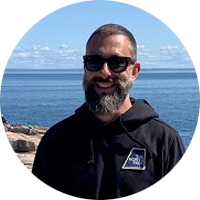
Dr. Dolson is a caring and committed teacher who is dedicated to his craft and to ensuring student success. He has offered courses at all levels, ranging from small seminars to large lectures in both Arts and Health and is noted for to creating excellent pedagogical opportunities for his students. Along with exceptionally high teaching evaluations, his students write comments such as, “He is undoubtedly the best professor I have ever had... I have never encountered a professor with as much passion for course material and care for students as (Dr. Dolson).” In addition to being an excellent teacher in the classroom, students note Dr. Dolson’s commitment to serving as a mentor in difficult times: “You have been one of my pillars of support here at Waterloo!”
Katherine Bruce-Lockhart, Assistant Professor, History
A deep professional and personal commitment
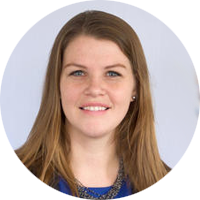
Megan Selinger, Lecturer, English Language and Literature
A commitment to teaching and collegiality
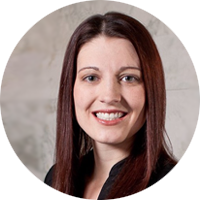
Dr. Selinger has established a stellar reputation as a highly regarded instructor and mentor to other communication course instructors in the Communication in the Sciences and in the Engineering Profession program. It's rare to see a junior colleague take on leadership roles so early in her career and to excel at them. Dr. Selinger is an exceptional instructor: kind, generous, focused, and always looking for ways to do even better. For instance, in less than one week, she redesigned an essential course for remote delivery that allowed Science students to complete their requirements. It’s no surprise that her gifts, along with her commitment to teaching and collegiality, have made her a sought-after guide on communication course delivery and pedagogy.
Excellence in Research
Naila Keleta-Mae, Associate Professor, Communication Arts
An admired and inspiring researcher
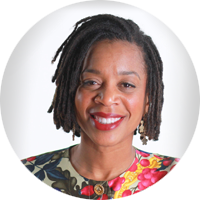
With one of her major projects focused on Black expressive culture, Dr. Keleta-Mae is admired for her deep, sustained commitment to research that spans and engages multiple publics. She has written in well-known periodicals as well as mainstream media that expand her audience and bring academic research to the larger public. Dr. Keleta-Mae has published in leading journals in her field and published a single-authored monograph. In addition, she has an excellent record of success with multiple major grants, including the Ontario Research Fund – Research Excellence (ORF-RE ) for her five-year project, Freedom in Black Expressive Culture in Ontario. Her research and artistic record is truly outstanding and she is an inspiring researcher to others.
Nicole Nolette, Associate Professor, French Studies
A significant impact on her field

Awarded a Canada Research Chair in Minority Studies in 2018, Dr. Nolette is an extremely prolific scholar focused on both theatre practice and translation studies, and more recently, minority-language artistic practices both within Canada and internationally. She has an outstanding track record of securing research funding, and is clearly having a significant impact on her field, as indicated by her publication venues and the number of addresses and invited talks she has given. She is a generous supervisor and mentor for her graduate and undergraduate students, and consistently works to further the dissemination of research on theatre and translation studies.
Emmett Macfarlane, Associate Professor, Political Science
An extraordinarily prolific researcher
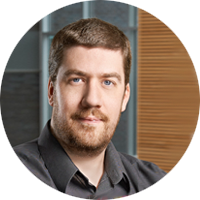
Dr. Macfarlane is an exceptional scholar—both in terms of the quality and quantity of his publications, and in the impact that his work has had on public policy. Since his appointment to Waterloo in 2012, Dr. Macfarlane has been an extraordinarily prolific researcher and publisher and quickly established himself as one of Canada’s leading constitutional law specialists. His research is distinguished not just by its academic excellence but also by the impact that it has had on public policy in Canada. Dr. Macfarlane has contributed directly to significant policy change notably: Senate reform (in 2016), reform of the Supreme Court appointments process (in 2016/17), and reform of parliamentary procedure during the COVID-19 pandemic (in 2020).
Katherine White, Associate Professor, Psychology
Major contributions to language development research
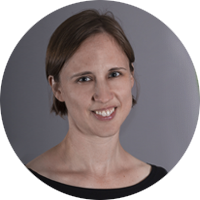
Dr. White is a developmental psychologist who has made major contributions to our understanding of language development in infants and children, and to our understanding of cognitive development more generally. In the last 5 years alone, she has published 13 peer-reviewed journal articles, 2 chapters, and 2 peer-reviewed conference proceedings. Dr. White’s excellence as a researcher is recognized both in Canada and abroad. One clear sign of her excellence and impact is her highly cited papers, and her citation count is on the rise, with her works cited over 230 times last year alone. Dr. White has been proactive in her knowledge translation efforts by communicating the findings of her research to audiences outside of academia. In recent years, she has penned popular press articles discussing language learning in our multicultural society, and on the complexities of children’s early language abilities.
Where is Porcellino?
If you've been in the Arts Quad lately, you might notice something is missing. The furniture is back. The flowers are in full bloom. But everyone's favourite good luck charm? No where to be seen.
One morning in late June, a former Arts staff member spotted Porcellino in a part of campus he's never visited before. While the boar had been firmly attached to his perch outside Modern Languages for years, certain students from a certain faculty managed to remove (that is, WRENCH) Porcellino from his base for an impromptu campus tour.
Rest assured Porci is recovering from his adventure (that is, safe with Plant Ops for some repairs) and we hope to see him back home in front of ML as soon as possible.
In the meantime, we had some fun imagining Porcellino's tour. One of these photos is real — and holds the clue to the disappearance of our beloved boar. (Click on any photo to expand the gallery.)
Waterloo websites on the move
» Elizabeth Rogers, Communication Officer
We always say that "a website is never done" — it's constantly changing with new information and functionality. But sometimes it needs a major update behind the scenes. As the latest version of the Waterloo Content Management System (affectionately known as WCMS 3) is nearing completion, more and more websites will be moving over in the next year — including the 50+ sites within Arts.
Why the switch? The platform behind WCMS 2 is Drupal 7, whose days are numbered. The company plans to stop supporting it in November of 2023. No more bug fixes. No new features. No more security fixes. (You can see why this would be a problem!)
The migration isn't a complete re-do — think of it as doing home renovations rather than building a new house — but you will notice a few new features such as a more modern horizontal "mega menu". Site maintainers will enjoy some new functionality and new layout options too. You might have seen a few brave early adopters using the constantly-evolving WCMS 3 — such as About Waterloo.
What's happening in Arts? As with the rest of campus, we're currently migrating smaller, simpler sites while IST finishes the system and the migration tools. We don't know exactly when WCMS 3 will be ready for larger sites to be migrated, but rest assured there won't be any surprises. Our communication team and IST will work with departmental website maintainers on the timing and the process.
In the meantime, a big shout out to the many folks helping to clean up departmental and other sites to get ready for migration. Think of it as de-cluttering your home before you move (or renovate), and you get the general idea.
For more information, see our Q&A about Arts website migrations. If you aren't in the WCMS for your research or project website, we'd be happy to talk about whether it's the right fit.
Any questions? Please don't hesitate to reach out to Elizabeth Rogers at em2rogers@uwaterloo.ca.
COMING SOON: In the spirit of website clean up, we've been tackling a re-vamp of the Faculty and Staff section of the Arts website. Over the years, the content outgrew its space on the site. The info you need will be easier to find when it's all moved into its new home in WCMS 3 — including Inside Arts.
ICYMI: Recent stories from Arts
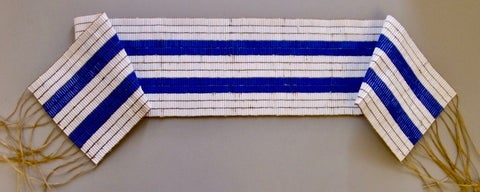
Reclaiming Indigenous histories
Dr. Talena Atfield answers questions about the recovery and regeneration of Indigenous artifacts

From student to policy professional
Master’s graduate Gigi Chan finds her passion in social policy and government

Why people trust or distrust experts
Dr. Ashley Rose Mehlenbacher looks at what makes an expert and why people may listen to them or dismiss them on important issues

Co-op, clubs, and confidence
GBDA graduate Berlin Pang shares how clubs and co-op prepared her with the confidence to collaborate effectively in the workforce
Mark your calendar for fall events
- September 20 — Faculty of Arts Distinguished Lecture in Economics, with speaker Paul Beaudry, Deputy Governor of the Bank of Canada
- September 26 — Indigenous Speakers Series with Jani Lauzon (director and playwright) and Kaitlyn Riordan (playwright) whose play 1939 is running at Stratford Festival this season
- October 19 — Hagey Lecture with speaker Antoni Cimolino, Artistic Director of the Stratford Festival
- October 28 — Stratford School 10th anniversary celebration and events
- November 10 – BSIA-Arts talk with George Elliott Clarke and Wendell Adjetey — “Who Do You Think You Are, and Who Gets to Decide? Are you Black, Indigenous, or Afro-Métis?”
- November 23-26 — Everybody by Branden Jacobs-Jenkins,produced by Theatre and Performance — contemporary rewrite of Everyman, which is running at Shaw Festival this season
- December 1 — Indigenous Speakers Series with Dr. Talena Atfield, professor in the Deptartment of History
Feedback?
Inside Arts is published each term (usually). Comments, ideas, and submissions are always welcome. Please email Wendy Philpott.
Yes, the letters in this issue's banner do look familiar! Each one was taken from an artwork hanging in Arts hallways. Can you guess where?


